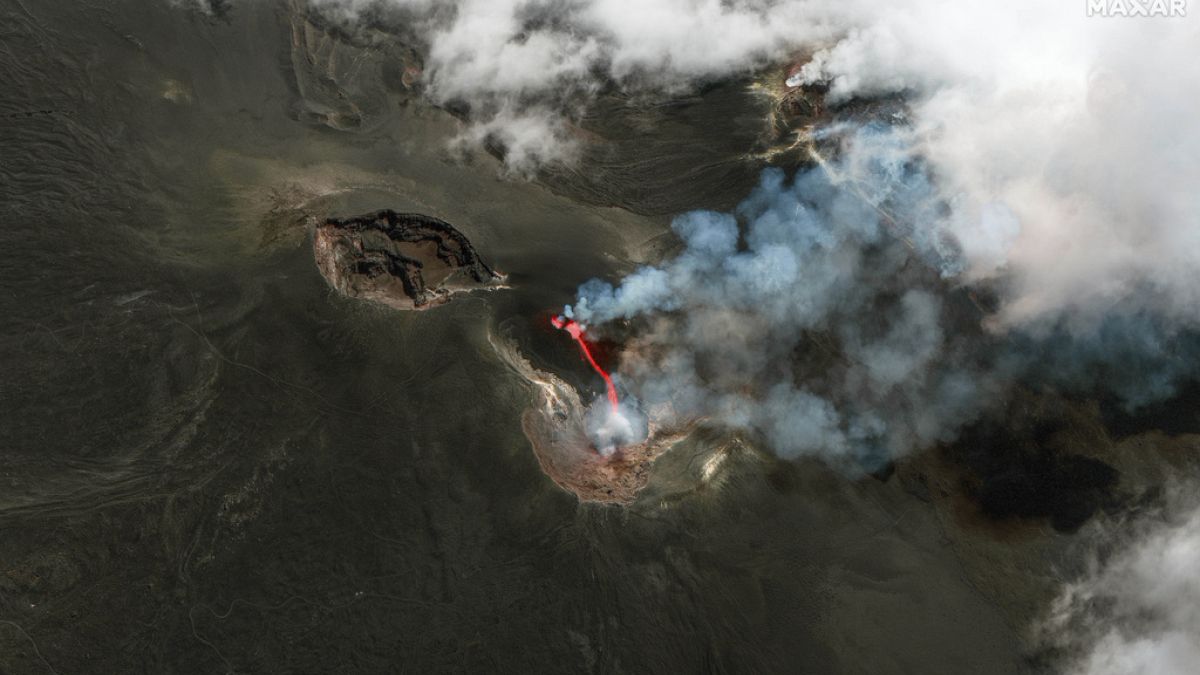Sicily on red alert as Mount Etna and Stromboli volcanoes erupt

Warnings are in place as both Etna and Stromboli volcanoes have become dangerously active.
Travellers using Catania airport – one the main international gateways to Sicily – faced severe delays today thanks to Mount Etna’s latest eruption.
The active volcano, Europe’s highest, has seen significantly increased activity over the past week.
Stromboli, on the nearby Aeolian island, is also erupting and spewing lava into the sea.
The Istituto Nazionale di Geofisica e Vulcanologia in Catania reported that ash emanating from Mount Etna has reached a staggering 4.35 kilometres into the air.
As a result, much of the airspace near the volcano was forced to close to passenger aircraft. Normal service has now resumed at the airport.
With Sicily’s summer season in full swing, what should travellers expect when Mount Etna is erupting?
What kind of disruption has Mount Etna’s eruption caused to air traffic?
At least 90 outbound and inbound flights were cancelled at Catania airport, disrupting around 15,000 passengers.
Ryanair alone were forced to cancel 42 flights – the highest of any airline.
Easyjet were affected too: “We’re sorry that your flight has been cancelled,” they told passengers, “This is because volcanic activity in CTA [Catania] is causing restrictions to the areas in which aircraft are permitted to fly.”
A large chunk of travellers found themselves on diverted flights, with many arriving at Palermo, the airport which serves Sicily’s capital and a 4-hour drive from Catania.
Is Mount Etna likely to continue erupting?
Italy’s Civil Protection Department has warned that this is not a one-off event.
“Italy, together with Iceland, has the greatest concentration of active volcanoes in Europe and is one of the first in the world for the number of inhabitants exposed to volcanic risk,” they said in a statement, “Active or potentially active volcanoes are situated in southern Italy with varying degrees of hazard.”
The department also advised locals and tourists alike to “follow the civil protection authorities’ instructions transmitted by radio, TV, in the daily press, on the internet and by the various toll-free numbers that will be set up.”
They also instructed people, during eruptions, to not enter forbidden areas as “it is dangerous to approach the crater area even if there is no eruptive activity as sudden explosive phenomena or gas emissions are always possible.”
Catania’s Mayor, Enrico Trantino, also issued an order banning local people from using two-wheeled forms of transport for 48 hours. He also set a speed limit of 30 km/h because of the potential danger of driving on ash.
As Mount Etna erupts so frequently, tourist’s activities are rarely disrupted. The volcano has more than 200 craters so even when one of them is erupting, there are many other areas where visitors can safely hike.
Read our full guide to hiking up Moune Etna.
Stromboli volcano: Italy issues red alert over Aeolian island volcano
Etna is not the only volcano causing issues for Sicily.
Late on Thursday, Italy’s Civil Protection Department issued a red alert due to the eruption of the nearby Stromboli volcano, raising the potential threat level from moderate to severe.
Stromboli is one of the Aeolian islands, located off the north-east of Sicily and popular tourist destinations especially in the summer.
The ruling came after the department and local leaders assessed “rapid developments” concerning Stromboli volcano.
There have been reports of lava spilling into the sea and generating a two-kilometre high plume of smoke.
In a press release, Italy’s National Institute of Geophysics and Volcanology (INGV) reported “effusive activity” from a vent 700 metres above sea level.
The INGV added that “the seismic signal has remained at a very high level” and authorities have warned the situation could deteriorate.
Civil Protection Minister Nello Musumeci said Stromboli was “under surveillance” and confirmed that evacuation plans were in place in case of emergency and that the fire brigade had preemptively doubled the number of firefighters on the island.
Videos and images of Stromboli showed a dramatic giant ash cloud rising out of the sea.
On the neighbouring island of Lipari, the mayor has put in place precautionary measures to protect the small community’s inhabitants.
Stromboli is a diminutive island – just 12 square kilometres in area and 924 metres high.
It’s made up of the top of a volcano which is largely underwater, but is one of the most active on the planet.
Despite the fact that it has been erupting almost continuously for the past 90 years, it’s a tourist hotspot.
The INGV says it is one of very few volcanoes in the world with almost continuous activity.
Stromboli last erupted in 2022, with no casualties. A 2019 eruption, though, resulted in the death of a 35-year-old hiker from Messina and forced about 30 tourists to jump into the sea for safety.
Related
Brits forced to pay fee to visit these 30 countries…
UK tourists will be required to pay a fee to visit 30 countries in Europe under new European Union (EU) travel rules.The rules mean British holidaymakers will n
The beautiful European island with just 148 locals
Irakleia is a beautiful island in the Minor Cyclades of Greece, nestled in the heart of the Aegean Sea and just an hour away from Naxos. Officially recorded t
Warning issued for Brits flying easyJet and Ryanair to popular…
Passengers flying with Ryanair, easyJet and British Airways should expect disruption (Picture: Urbanandsport/NurPhoto via Getty Images) Passenge










